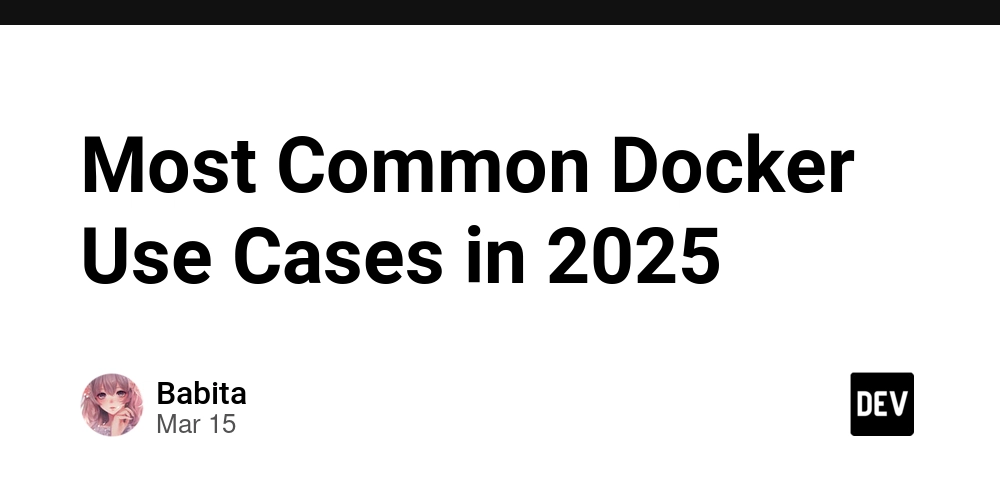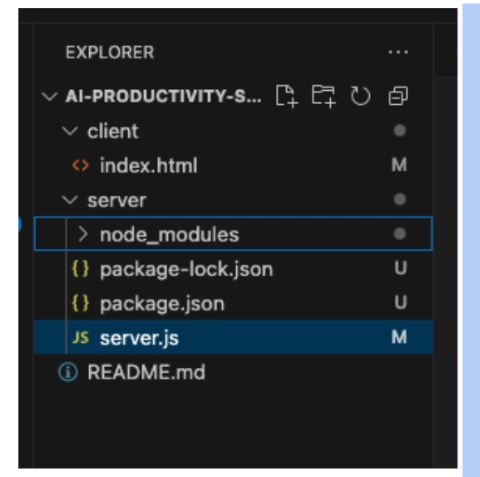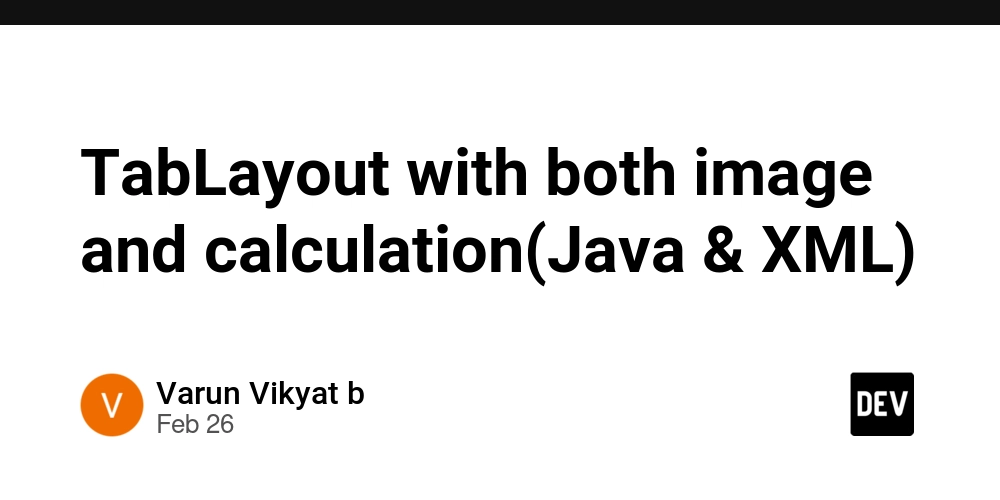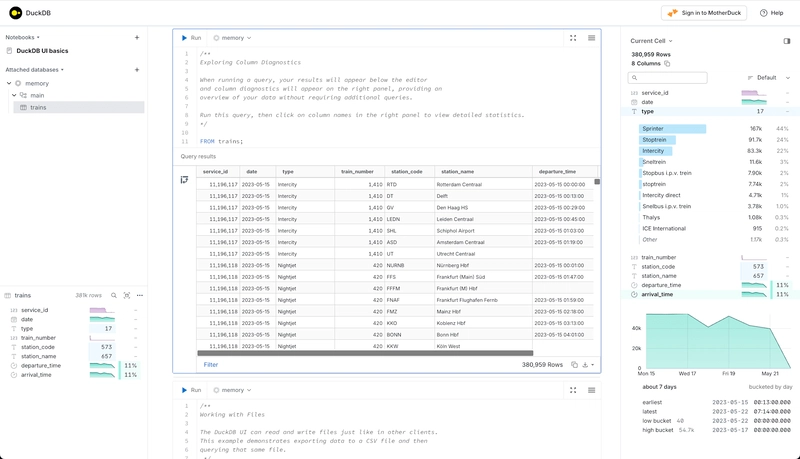Most Common Docker Use Cases in 2025
Docker has revolutionized the method by which applications are created implemented, deployed, and maintained. As we approach 2025, its use continues to increase across different industries, providing flexibility, scalability, as well as efficiency. If you are a developer an DevOps engineer or a company looking to streamline the process of deploying software, Docker has something to provide. We will go over the most popular Docker scenarios in 2025. 1. Application Development and Testing One of the most common uses of Docker is for application development and testing. Developers make use of Docker to build isolated environments that replicate production systems, which allows users to test their applications with a controlled environment. This solves any "works on my machine" issue and provides consistency across development tests, production and testing environments. 2. Microservices Architecture Microservices have been the core in modern development of software and Docker plays an essential role in directing these services effectively. With Docker every microservice is run inside its own container which makes it simpler to create or update each component without affecting the whole system. 3. Continuous Integration and Continuous Deployment (CI/CD) CI/CD pipelines gain greatly from Docker's ability to bundle applications along with their dependencies. Developers can utilize Docker images to create applications, test and deploy applications quickly and easily to reduce integration issues and speeding release cycles of software. 4. Cloud-Native Application Deployment Docker integrates seamlessly with cloud platforms such as AWS, Google Cloud, and Microsoft Azure. Businesses use Docker to build cloud-native apps quickly and easily, using containers orchestration tools such as Kubernetes to manage networking, scaling, and security. 5. Containerized Machine Learning and AI Workloads When AI as well as machine-learning models grow more complicated, Docker provides a way to bundle models with their dependencies to ensure the sameness across different environments. Engineers and data scientists use Docker to build and share models of machine learning without having to worry over compatibility concerns. Additionally, many professionals take a Docker Course to enhance their skills in managing AI/ML workloads efficiently. 6. Edge Computing and IoT Applications Edge computing is taking off and Docker lets you deploy lightweight, containerized apps on devices at the edge. This allows efficient utilization of resources and allows real-time processing near to the source of data, which can reduce the bandwidth and latency. 7. Legacy Application Modernization Many companies still use old applications that are hard to manage. Docker assists by containerizing these apps and making them more portable, easy to update and deploy with modern technology without the complete overhaul. 8. Database Containerization Databases such as MySQL, PostgreSQL, and MongoDB are able to be containerized with Docker. This makes deployment and backup as well as scaling much easier, particularly for testing and development environments. However, for production environments, the right configuration is essential to ensure persistence of data and security. 9. Security and Isolation Docker offers a secure method for applications to be run in isolated settings. Security and development teams utilize Docker to test and analyze vulnerabilities within a safe containerized configuration, which ensures that applications are secure from security flaws prior to deployment. 10. Hybrid and Multi-Cloud Deployments With many companies using hybrid and multi-cloud strategies, Docker simplifies application deployment across multiple cloud providers. Containers guarantee that apps remain functional and portable in exactly the same way, regardless of the infrastructure used. Final Thoughts Docker continues to transform the game by 2025, allowing organizations to create, deploy and scale their applications easily. When you are working on new applications, modernizing existing systems or integrating AI/ML tasks, Docker provides a robust solution that can meet your requirements. As the ecosystem of containers develops further, we can expect more inventive applications to come up.

Docker has revolutionized the method by which applications are created implemented, deployed, and maintained. As we approach 2025, its use continues to increase across different industries, providing flexibility, scalability, as well as efficiency. If you are a developer an DevOps engineer or a company looking to streamline the process of deploying software, Docker has something to provide. We will go over the most popular Docker scenarios in 2025.
1. Application Development and Testing
One of the most common uses of Docker is for application development and testing. Developers make use of Docker to build isolated environments that replicate production systems, which allows users to test their applications with a controlled environment. This solves any "works on my machine" issue and provides consistency across development tests, production and testing environments.
2. Microservices Architecture
Microservices have been the core in modern development of software and Docker plays an essential role in directing these services effectively. With Docker every microservice is run inside its own container which makes it simpler to create or update each component without affecting the whole system.
3. Continuous Integration and Continuous Deployment (CI/CD)
CI/CD pipelines gain greatly from Docker's ability to bundle applications along with their dependencies. Developers can utilize Docker images to create applications, test and deploy applications quickly and easily to reduce integration issues and speeding release cycles of software.
4. Cloud-Native Application Deployment
Docker integrates seamlessly with cloud platforms such as AWS, Google Cloud, and Microsoft Azure. Businesses use Docker to build cloud-native apps quickly and easily, using containers orchestration tools such as Kubernetes to manage networking, scaling, and security.
5. Containerized Machine Learning and AI Workloads
When AI as well as machine-learning models grow more complicated, Docker provides a way to bundle models with their dependencies to ensure the sameness across different environments. Engineers and data scientists use Docker to build and share models of machine learning without having to worry over compatibility concerns. Additionally, many professionals take a Docker Course to enhance their skills in managing AI/ML workloads efficiently.
6. Edge Computing and IoT Applications
Edge computing is taking off and Docker lets you deploy lightweight, containerized apps on devices at the edge. This allows efficient utilization of resources and allows real-time processing near to the source of data, which can reduce the bandwidth and latency.
7. Legacy Application Modernization
Many companies still use old applications that are hard to manage. Docker assists by containerizing these apps and making them more portable, easy to update and deploy with modern technology without the complete overhaul.
8. Database Containerization
Databases such as MySQL, PostgreSQL, and MongoDB are able to be containerized with Docker. This makes deployment and backup as well as scaling much easier, particularly for testing and development environments. However, for production environments, the right configuration is essential to ensure persistence of data and security.
9. Security and Isolation
Docker offers a secure method for applications to be run in isolated settings. Security and development teams utilize Docker to test and analyze vulnerabilities within a safe containerized configuration, which ensures that applications are secure from security flaws prior to deployment.
10. Hybrid and Multi-Cloud Deployments
With many companies using hybrid and multi-cloud strategies, Docker simplifies application deployment across multiple cloud providers. Containers guarantee that apps remain functional and portable in exactly the same way, regardless of the infrastructure used.
Final Thoughts
Docker continues to transform the game by 2025, allowing organizations to create, deploy and scale their applications easily. When you are working on new applications, modernizing existing systems or integrating AI/ML tasks, Docker provides a robust solution that can meet your requirements. As the ecosystem of containers develops further, we can expect more inventive applications to come up.











































































































































































![[The AI Show Episode 142]: ChatGPT’s New Image Generator, Studio Ghibli Craze and Backlash, Gemini 2.5, OpenAI Academy, 4o Updates, Vibe Marketing & xAI Acquires X](https://www.marketingaiinstitute.com/hubfs/ep%20142%20cover.png)




























































































































![[DEALS] The Premium Learn to Code Certification Bundle (97% off) & Other Deals Up To 98% Off – Offers End Soon!](https://www.javacodegeeks.com/wp-content/uploads/2012/12/jcg-logo.jpg)


![From drop-out to software architect with Jason Lengstorf [Podcast #167]](https://cdn.hashnode.com/res/hashnode/image/upload/v1743796461357/f3d19cd7-e6f5-4d7c-8bfc-eb974bc8da68.png?#)








































































































.png?#)

































_Christophe_Coat_Alamy.jpg?#)
 (1).webp?#)





































































































![Apple Considers Delaying Smart Home Hub Until 2026 [Gurman]](https://www.iclarified.com/images/news/96946/96946/96946-640.jpg)
![iPhone 17 Pro Won't Feature Two-Toned Back [Gurman]](https://www.iclarified.com/images/news/96944/96944/96944-640.jpg)
![Tariffs Threaten Apple's $999 iPhone Price Point in the U.S. [Gurman]](https://www.iclarified.com/images/news/96943/96943/96943-640.jpg)




































































































































